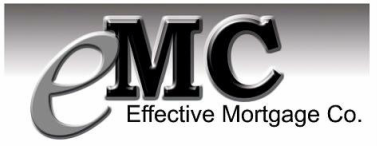Before you begin searching for a new home, you need to determine how much you can afford. You may be able to afford more or even less than you think due to what the lender is willing to loan you based on your income and the amount of down payment you have.
By getting pre-approved before looking for a home, you’ll save yourself time, energy and frustration because pre-qualification:
• Determines how much home you can afford. Pre-approval helps you avoid buying less home than you can afford or being disappointed if you don’t qualify for as much as you had hoped.
• Shows what your down payment will be. You’ll know approximately how much money you’ll need for down payment and closing costs.
• Lets you know what your monthly payment will be. You’ll have a general idea of what your monthly principal, interest, taxes and insurance payment will be.
• Identifies the loan programs you qualify for. With the wide variety of loan programs available, it’s important to know which types you qualify for and which will best suit your needs.
At this point, the lender can also help you determine alternatives and strategies that could help you buy the home of your dreams. These may include:
• Special first-time home buyers programs.
• Co-mortgagor financing.
• Low down payment programs.
In order to pre-approve you, the lender will need to know the following:
• Your employment history and income.
• Your monthly debts and obligations.
• The amount and source of cash available for down payment and closing costs.
After a brief discussion during which the loan officer will ask you some general questions about your income, debt, and assets, it is best to meet with the loan officer in person to be pre-qualified. When you are pre-qualified you will receive a Pre-Qualification Certificate to give to your real estate agent. When you find a home, they can then use the certificate to present your offer. The seller may be more likely to accept your contract because they know you are qualified to buy their home.
By getting pre-approved before looking for a home, you’ll save yourself time, energy and frustration because pre-qualification:
• Determines how much home you can afford. Pre-approval helps you avoid buying less home than you can afford or being disappointed if you don’t qualify for as much as you had hoped.
• Shows what your down payment will be. You’ll know approximately how much money you’ll need for down payment and closing costs.
• Lets you know what your monthly payment will be. You’ll have a general idea of what your monthly principal, interest, taxes and insurance payment will be.
• Identifies the loan programs you qualify for. With the wide variety of loan programs available, it’s important to know which types you qualify for and which will best suit your needs.
At this point, the lender can also help you determine alternatives and strategies that could help you buy the home of your dreams. These may include:
• Special first-time home buyers programs.
• Co-mortgagor financing.
• Low down payment programs.
In order to pre-approve you, the lender will need to know the following:
• Your employment history and income.
• Your monthly debts and obligations.
• The amount and source of cash available for down payment and closing costs.
After a brief discussion during which the loan officer will ask you some general questions about your income, debt, and assets, it is best to meet with the loan officer in person to be pre-qualified. When you are pre-qualified you will receive a Pre-Qualification Certificate to give to your real estate agent. When you find a home, they can then use the certificate to present your offer. The seller may be more likely to accept your contract because they know you are qualified to buy their home.

